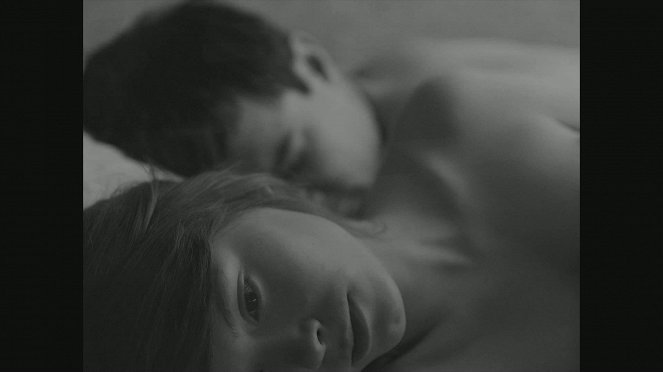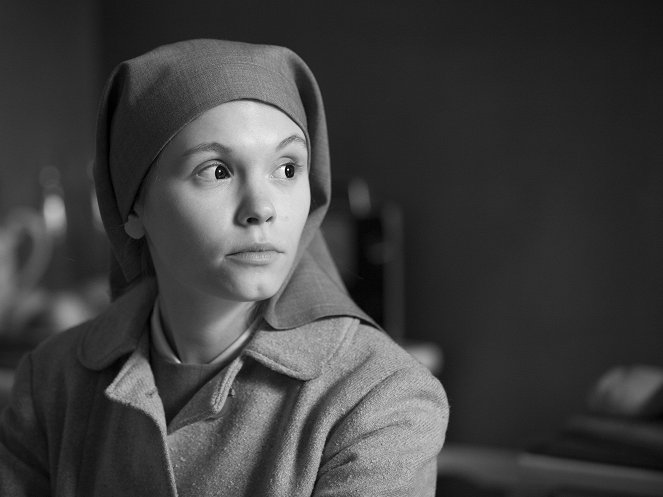Director:
Paweł PawlikowskiMúsica:
Kristian Eidnes AndersenReparto:
Agata Kulesza, Agata Trzebuchowska, Dawid Ogrodnik, Jerzy Trela, Adam Szyszkowski, Halina Skoczynska, Joanna Kulig, Mariusz Jakus, Izabela Dąbrowska (más)Sinopsis(1)
Polonia 1962. ANNA es una guapa jovencita de 18 años, que se prepara para convertirse en monja en el convento donde ha vivido desde que quedó huérfana de niña., pero pronto descubre que tiene una pariente viva que tiene que visitar antes de tomar los votos, la hermana de su madre, WANDA. Ambas se embarcan juntas en un viaje de descubrimiento sobre ellas mismas y de su pasado común. ANNA descubre que su tía no sólo es una antigua abogada del Estado comunista, conocida por sentenciar a sacerdotes y a otras personas a muerte, sino que además es judía. Descubre así que ella también es judía y que su verdadero nombre es IDA. Esta revelación hace que ANNA, ahora IDA, inicie un viaje para descubrir sus raíces y para enfrentarse a la realidad sobre su familia.IDA debe elegir entre su identidad natal y la religión que le salvó de las masacres de la ocupación nazi de Polonia. Y WANDA debe enfrentarse a decisiones que tomó durante la Guerra, cuando eligió la fidelidad a la causa antes que la familia. (Caramel Films Esp.)
(más)Videos (3)
Reseñas (8)
Un homenaje en blanco y negro y con relación de aspecto 4:3 al cine de los años 60 (en los que se ambienta la película) y al mismo tiempo un regreso del director Pawlikowski al suelo cinematográfico polaco. La historia de una joven novicia (etapa premonja) que emprende un viaje íntimo por carretera con su tía para descubrir la tumba de sus padres y se encuentra a sí misma, no es muy atractiva, y desde luego no es imprevisible. Pero el aspecto visual de la película merece la pena. Ida es una película modesta y pura que hace hincapié en la psicología de los personajes y en la estética de la imagen. Impresiona cuando se ve por primera vez, pero no hay que verla repetidamente.
()
Una película visualmente muy bonita, cuya trama avanza lentamente y sin forzar. Aprecio especialmente las excelentes actuaciones de ambos Agátas y la creación de una atmósfera impresionante de la Polonia de los años sesenta del siglo pasado. Como afirmó el director después de la proyección, no es una película para las masas.
()
The case of Pawlikowski and Ida shows in practice the validity of the age-old maxim that talent without a theme is nothing, or rather that the most impressive works are created when the creators look into themselves and focus on personal themes. Before Ida, Pawlikowski was a solid, but in no way essential, filmmaker with a long career in essayistic documentaries for the BBC and in independent genre-festival circles. Ida reflects his own renaissance as a man and artist in connection with tragic events in his family life and the apparent balance of his own identity and existence as an emigrant whom his mother took from Poland to Great Britain when he was an adolescent. Pawlikowski conceived Ida as a reflection of Poland with its ethically problematic history and injustices perpetrated against others, which, unlike the film and its heroine, the country has never dealt with. Through the personal dimension, however, Ida does not fall into the historical thesis of guilt, but instead remains an intimate film about freedom, the crossroads that one comes to in life and the power of personal choice, regardless of how impermissible that choice may seem with respect to categories. At the same time, the chosen stylisation with the use of a classic format and black-and-white picture is an open tribute to cinema at the time in which the film is set, while concurrently using the existing expressive lexicons for its own ends (as is clear not only from the conceptually meaningful use of static and moving shots, but also from the claustrophobic framing, which gradually transforms into details at the close of the film). It remains a paradox that following global success and an Oscar victory, Poland appropriated as its calling card a film about accepting and coming to terms with the past, and thus discovering new strength for one’s own life, i.e. things that Poland’s society and government essentially refuse to do.
()
Big topic are "seeming randomly" addressed in an intimate and subtle way (these big topics overlap not only through character of Wanda with what we shall address in the Czech republic) with an unprecedentedly refined, coldly reserved visual side. And this visual side is surprisingly the biggest stumbling block, because each shot is so magnificently composed that the image steals the show. And it's never good. In other words, surprisingly, despite the rich and high-quality content, "the form overshadows the content" to a larger extent.
()
Don't worry. A muted account of the traumas of history, an intimate detective story about identity and a film that deceives through its name, because the core of its power lies not in the beautiful but passive eyes of the nun, but in the electrifying character of Aunt Wanda (yes, this is a character no one here would want to play or write because she is a communist and is not portrayed as a lefty from hell). Pawlikowski looks at his characters through obsessively arranged frames, in which new-wave nostalgia, sacral chiaroscuroes and, in some places, the Kaurismäkie dance retro all meet. There is a bit of mannerism in it, and at the same time the film achieves a noticeable distance, which on the one hand is detrimental (it may be too withdrawn), on the other hand beneficial (the film does not fall into sentiment and defending / judging historical injustices and excessive psychologization). Ida is an extraordinarily clean and understandable (which is rare) shape that hides much of the drama beyond what is shown. It remains very strict and pleasantly reserved until the last moment. In a good way, a "noble" film that is always needed. [80%]
()



Anuncio